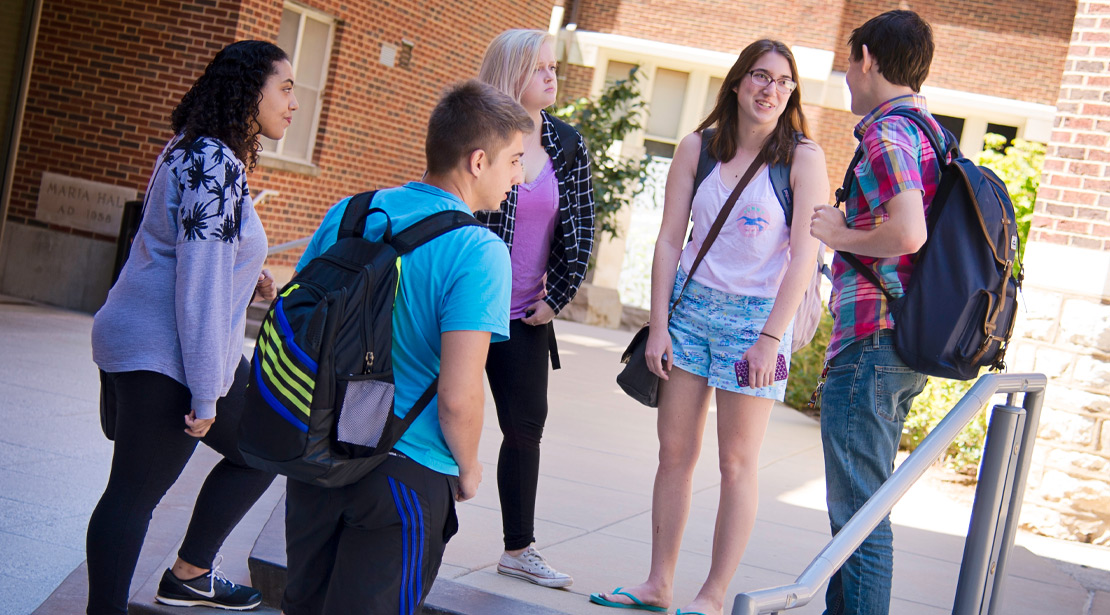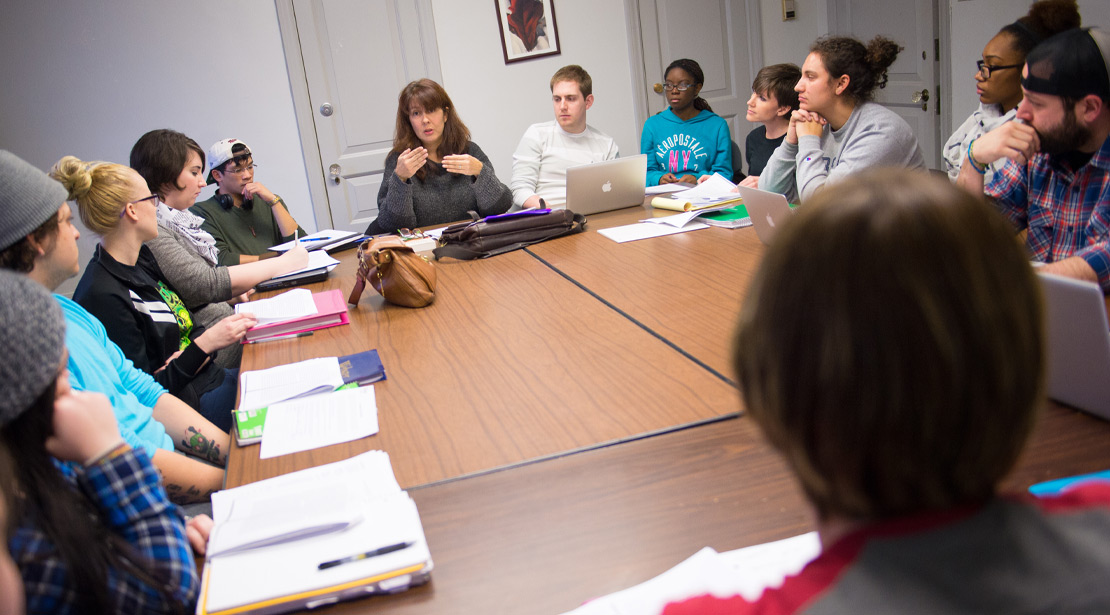Students in the Criminology and Criminal Justice degree program learn about crime, deviance and the American criminal justice system. Working toward a BA in Criminology and Criminal Justice, students explore the issues of greatest interest to criminologists working in the field today. At Webster University, the criminology curriculum combines the fundamentals of criminology and criminal justice into one field of study. The courses focus on training in multiple data-analysis methods commonly used by criminologists and criminal justice professionals. Studying crime and deviance with a particular emphasis on critical-thinking skills, students learn the ways professionals explain, predict and prevent crime and victimization.



Points of Distinction
- Faculty members are professionals currently working in the field of criminology and criminal justice who can bring real-world experience and the latest theories and practice to the classroom.
- Students can take specialized courses in transnational crime, terrorism, and homeland security at a global university with a truly transnational perspective.
- Students have an opportunity to supplement coursework for the major in diverse fields such as human rights; cybersecurity; sociology; women, gender and sexuality studies; and cultural anthropology.
- Students have numerous opportunities to collaborate with faculty on research projects.

“Being inside has a major impact on the mental health of someone; I want to prepare people for a positive life after imprisonment.”

BA in Criminology, ’21
Bachelor of Arts in Criminology and Criminal Justice
Find out more about the overall curriculum, electives, learning outcomes and more for the Criminology and Criminal Justice major.
Program Details
Explore our catalog for more details about courses, modalities and admission requirements for the bachelor’s degree in Criminology and Criminal Justice.
Locations
Our Criminology and Criminal Justice degree is offered in person at our Webster Groves, Missouri campus and through Webster University Online.
What Can You Do With a BA in Criminology and Criminal Sciences?
Alumni Success and Job Outlook
- According to the U.S. Bureau of Labor Statistics (BLS), jobs for probation officers and correctional treatment specialists are predicted to increase 3% through 2034. As of 2024, the median annual pay for probation officers and correctional treatment specialists is $64,520 per year.
- Jobs for police and detectives are predicted to increase 3%. As of 2024, the median annual pay for police and detectives is $77,270 per year, as reported by the BLS.

Get Started on Your Criminology and Criminal Justice Degree
Take the next step toward earning your Criminology and Criminal Justice degree. We are here to help you get started.
Explore
Learn more about our academic programs and our main campus and locations.
Engage
Connect with our admissions counselors and academic advisors.
Apply
Apply to Webster and take the next steps for financial aid and scholarships.
Contact the Admissions Office to Find Out More
If you have more questions about the program, your application or other enrollment-related inquiries, contact our Admissions Office.
Call 314-246-7800 or 800-753-6765 or send an email to admit@webster.edu.
